We look back on the film screening of ‘Rafiki’, which tells the story of love and resilience in the face of discrimination in Kenya. On Tuesday, June 3rd, we watched this powerful Kenyan film at Neude Library, followed by an inspiring conversation with Malala, a Kenyan human rights defender, about the film and the ongoing struggle for LGBTIQA+ rights and gender justice in Kenya.
Isabelle Zaroubi kicked off the evening by welcoming everyone and providing context for the event. She had worked closely together with Malala during her stay for the Shelter City Utrecht programme (together with Abel Klem), and took the opportunity to explain more about PBI and the Shelter City Utrecht project, which provides temporary relocation and support for human rights defenders at risk.
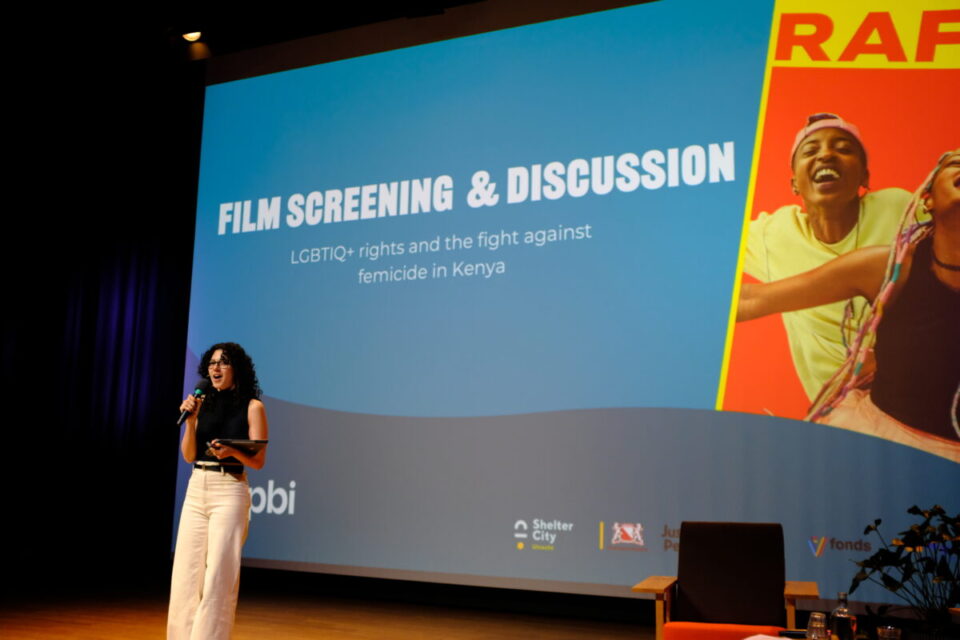
Before screening Rafiki, we also showed a short documentary we produced about Malala, created by Danique and Rachel Luttikhuisen. The documentary highlighted her important work as a human rights defender and provided insights into her stay with the Shelter City Utrecht programme.
Then it was time for the screening of the film Rafiki. The film opens with Kena and Ziki, two young women from opposing political families, navigating their growing attraction in a society where same-sex relationships are criminalized. The vibrant cinematography and heartfelt storytelling immediately drew viewers into their world, showcasing both the beauty of their love and the harsh realities they face. The film’s ban in Kenya upon its release made the screening all the more poignant, highlighting the ongoing challenges faced by LGBTIQA+ individuals across many parts of the world.
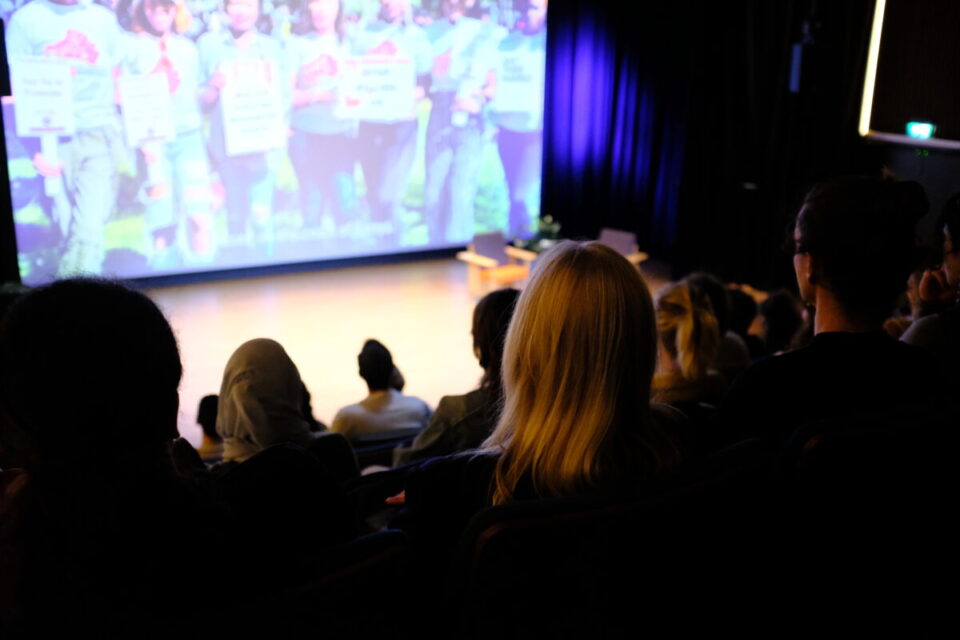
Following the film, we engaged in a meaningful dialogue with our guest speaker, Malala, a 29-year-old human rights defender with over 5 years of experience specializing in women’s rights, LGBTIQA+ rights, and combating gender-based violence. As a founding member of Feminists in Kenya, she led the TotalShutDown-Kenya campaign against femicide in 2019, bringing national attention to this critical issue. She currently leads She-Huru (“She is Free”), an initiative specifically addressing intimate partner violence in the LBTQ-GNC community, while providing crucial legal support through clinics and representation for gender-based violence survivors and LGBTIQA+ individuals.
Malala’s insights provided essential context for understanding the challenges depicted in Rafiki. She explained how Kenya maintains colonial-era laws criminalizing same-sex relationships between men, with penalties up to 14 years imprisonment, creating a legal landscape where LGBTIQA+ individuals face constant threat of persecution. Despite some legal victories for LGBTIQA+ rights, the community continues to face discrimination and violence, with a 2019 challenge to anti-LGBTIQA+ laws being rejected by the High Court. Through her community education programmes and legislative advocacy work, Malala demonstrated the multifaceted approach required to create inclusive policies and safer spaces for marginalized communities in such challenging contexts.
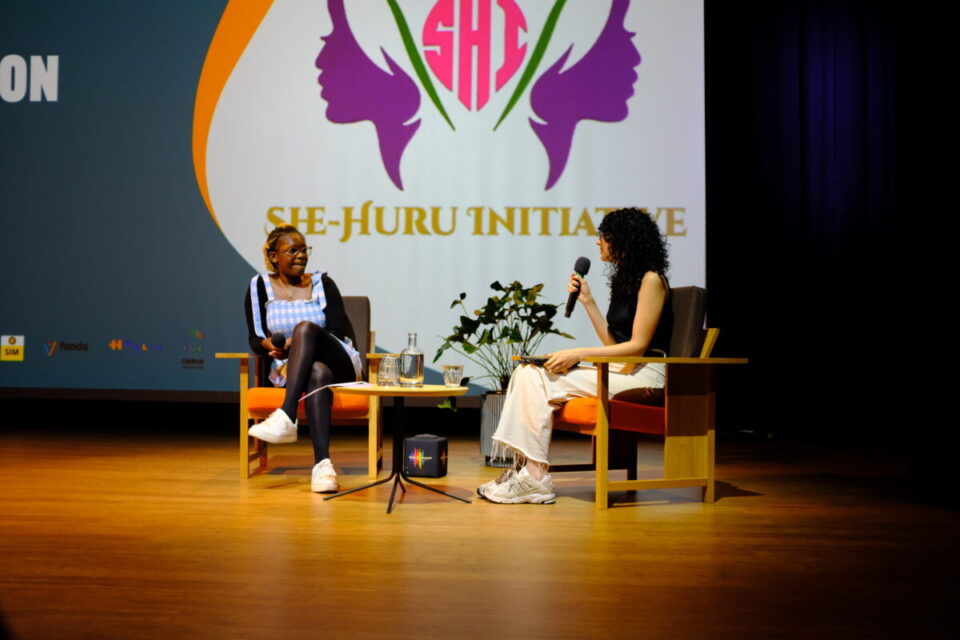 We concluded the evening with a Q&A session where the audience could ask questions directly to Malala. The questions came from a diverse group of attendees – some who were already well-informed about LGBTIQA+ issues in Kenya and across Africa, asking detailed questions about specific advocacy strategies and legal challenges, while others who knew very little about the topic asked fundamental questions about the current situation and how they could offer support. Throughout the session, we heard many comments from attendees expressing how inspiring they found the evening and how grateful they were for the opportunity to learn from Malala’s firsthand experiences.
We concluded the evening with a Q&A session where the audience could ask questions directly to Malala. The questions came from a diverse group of attendees – some who were already well-informed about LGBTIQA+ issues in Kenya and across Africa, asking detailed questions about specific advocacy strategies and legal challenges, while others who knew very little about the topic asked fundamental questions about the current situation and how they could offer support. Throughout the session, we heard many comments from attendees expressing how inspiring they found the evening and how grateful they were for the opportunity to learn from Malala’s firsthand experiences.
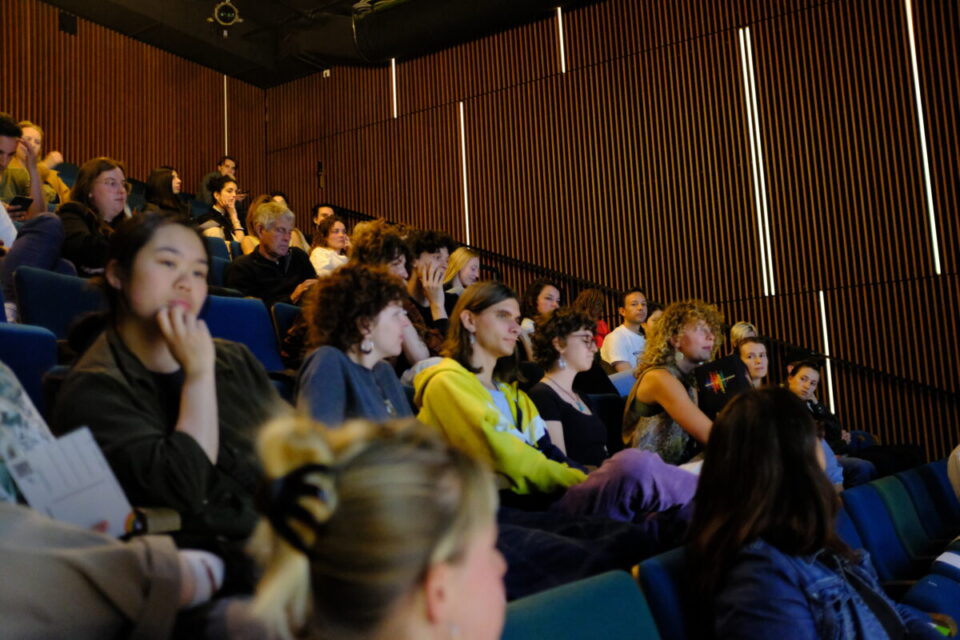
Additionally, we invited the audience to write messages of support on cards we distributed at the end of the evening, addressed to LGBTIQA+ activists and community members in Kenya like Malala and her colleagues at She-Huru. We collected cards filled with messages of solidarity, admiration, and hope, creating a tangible connection between our Utrecht audience and those fighting for equality on the front lines.
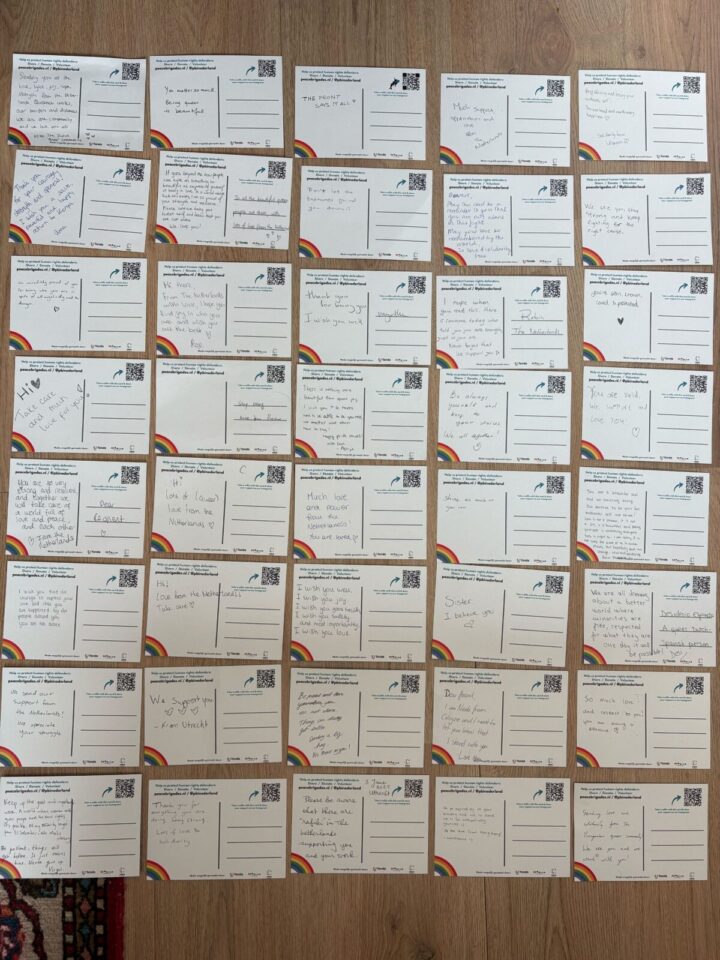
We want to extend our heartfelt thanks to Malala for her powerful testimony, to the attendees for their active participation in the discussion, de Bibliotheek Neude for hosting this event, Vfonds, Haëlla Stichting and Cirrus Foundation for supporting us, our partners Gemeente Utrecht , Justice & Peace Netherlands, Utrecht University, the photo’s by MetFrancis and of course all our volunteers making this evening possible!
